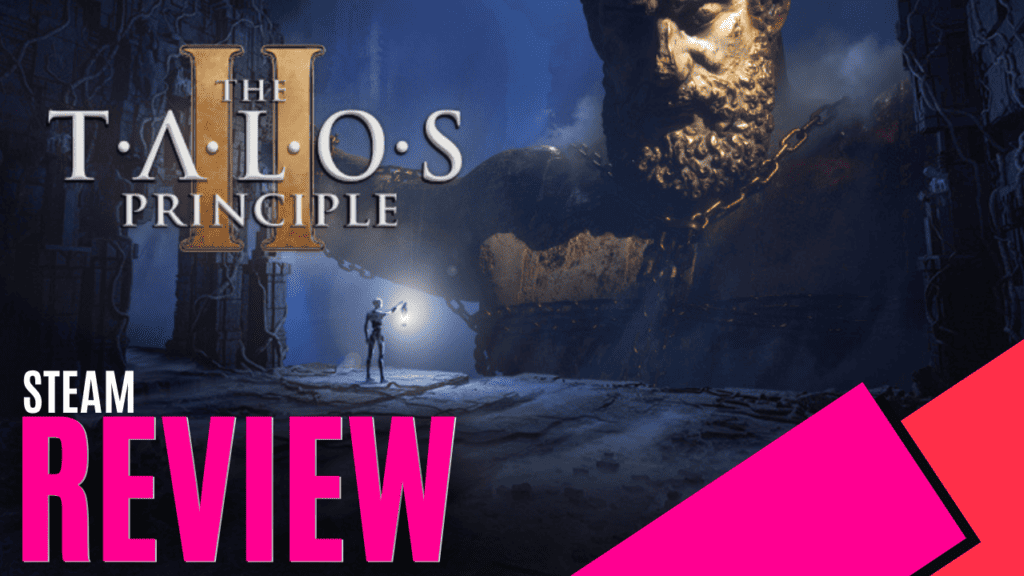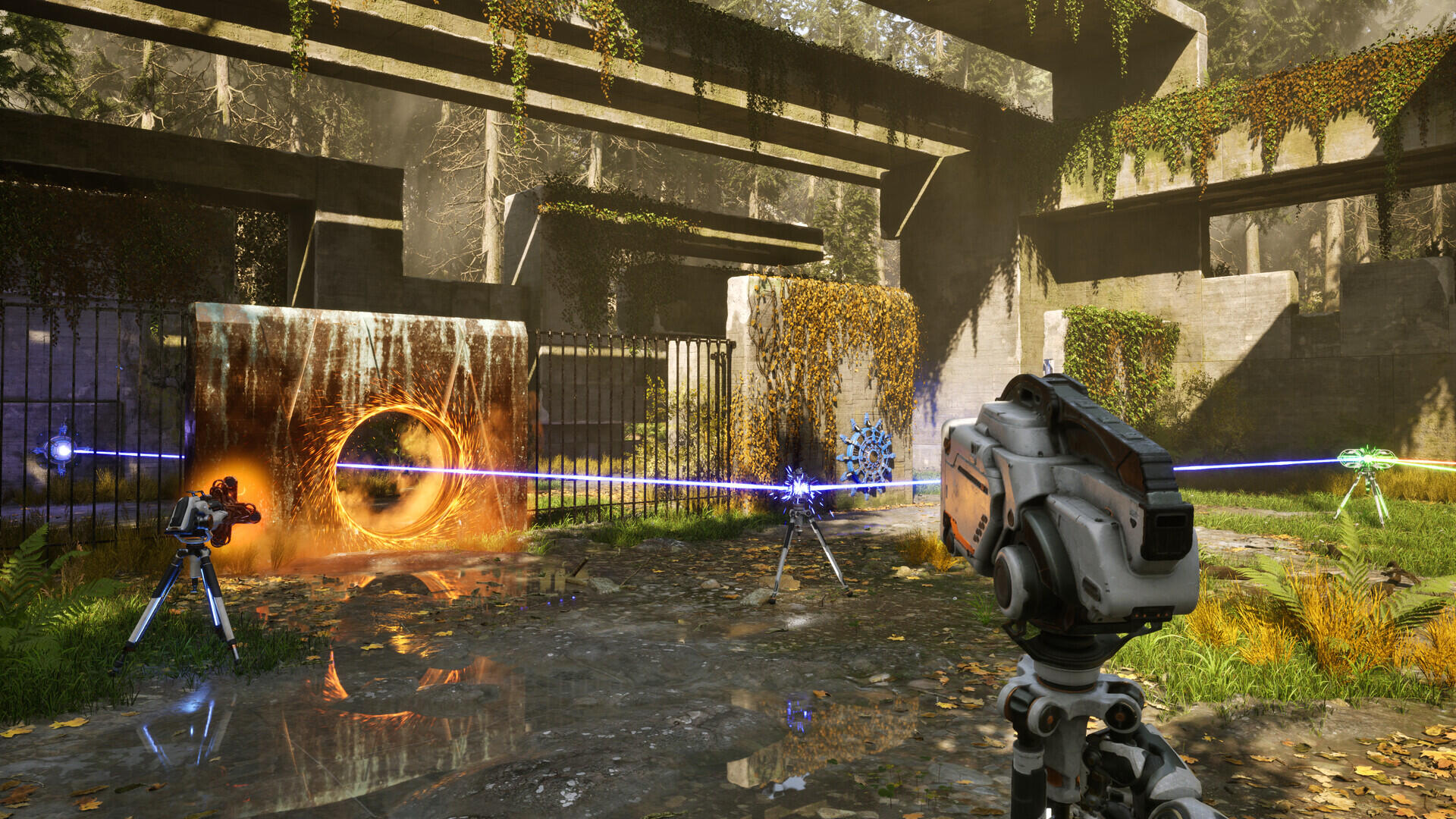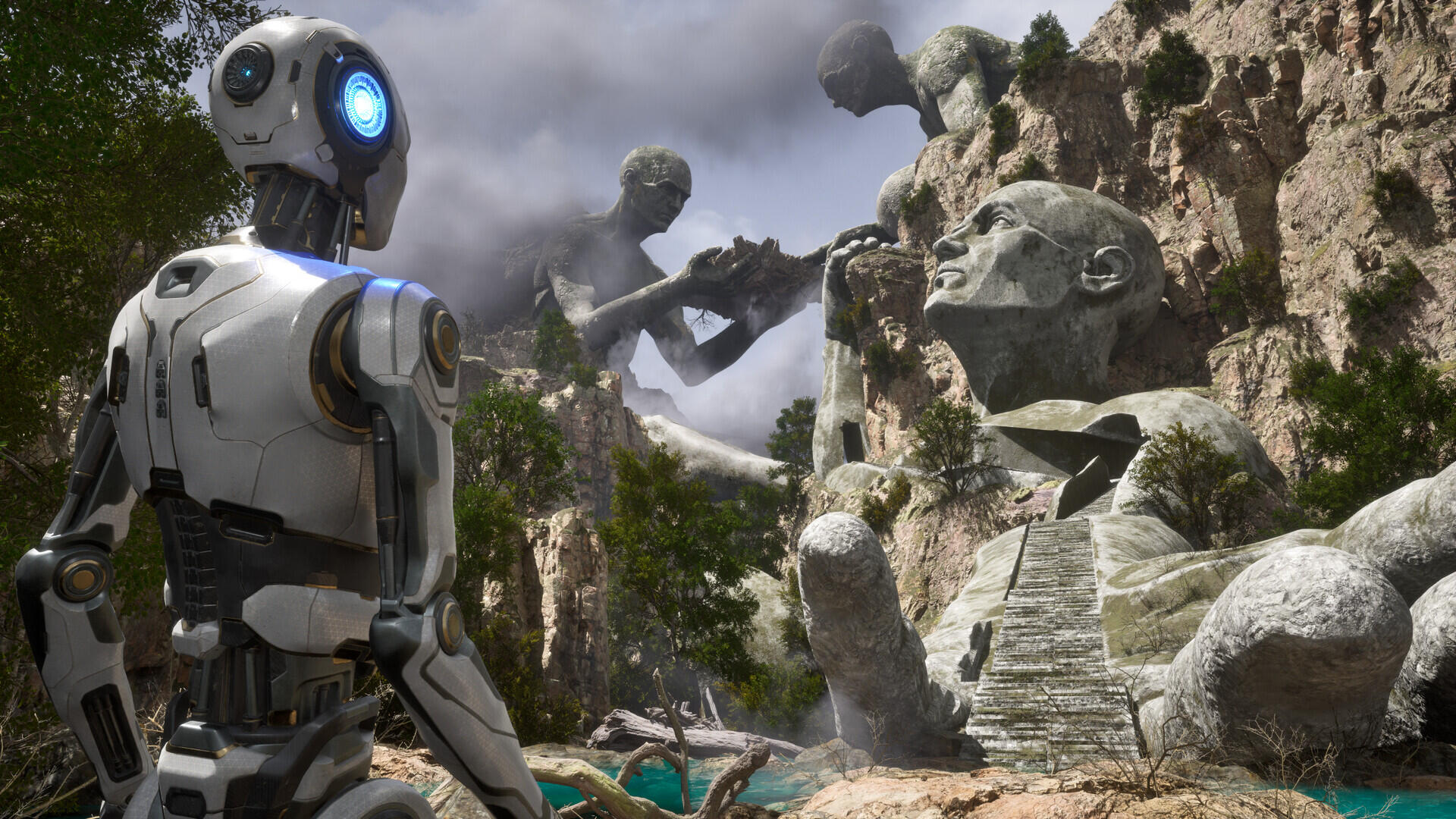
Developer Croteam has entertained me since 2001 with their Serious Sam franchise, but to be perfectly honest, beyond that, I haven’t paid them much heed in conjunction with my newest unhealthy love affair – the producers, Devolver Digital. They teamed up with Croteam back in 2014 to bring us The Talos Principle, a game I didn’t even know existed until The Talos Principle 2 was offered to me to review, and let’s just say, Serious Sam is no longer alone when it comes to Croteam games that have my attention.
The story of The Talos Principle 2 follows on from The Talos Principle, and when starting, I was worried I may be lost as to what was going on or happening. This was never the case, and if some events or conversations tied back to the first game, I certainly wasn’t left feeling out of the loop.
You play as 1K, an artificial intelligence robot, beginning in a simulation as you’re being tested by a mysterious voice called Elohim. Elohim is a program that was designed to guide artificial intelligence, however, it acquired sentience, and in fear of becoming nonexistent, cheated, turning the program into a test.
This test now serves as the gateway to those who pass it, granting entry into the world proper, and when 1K arrives in the world, he is met with fanfare, as he is the last to be produced from the Elohim program. This event also triggers another mysterious event, and an entity appears above the celebration.

Inciting a range of emotions from the populace of New Jerusalem, you join a team to explore an area believed to be the cause of the entity’s appearance.
There is so much to unpack in New Jerusalem, even before you start the game properly, with a range of topics including self-consciousness, existentialism, history, mythology, religion, nature, cosmos, and civilization, and your interactions with other artificial intelligence will have you thinking well before you reach the destination of the entity.
The gameplay of The Talos Principle 2 moves at a slow and methodical pace, and your primary goal is to explore your surroundings for clues and solve puzzles to progress, with the narrative unlocking as you progress through the puzzles. These do get increasingly more complex to solve, and as new tools and equipment appear, there is little explanation as to how they work or how they are to be used.
If you are someone who isn’t willing to take their time, study the environment, and experiment, you are going to find The Talos Principle 2 very frustrating. For those who are patient and persistent, you will not only be rewarded with a highly intriguing story but you’ll also be rewarded by those big-brain moments as you solve a puzzle that may have had you stumped for a while.
Moving and interacting with the environment as 1K is smooth and responsive with the keyboard and mouse controls. Standard WASD for movement and the mouse to look will not be unfamiliar to anyone who has played a first-person game. Holding shift to run and using space to jump, you can move about your environment with ease, while the E key, or your mouse buttons, interact with objects, making for a fluidity of action that never makes you feel slow or sluggish.

The graphics are truly breathtaking. Multiple times I found myself just stopping and staring at not only the environment but objects themselves. The Talos Principles 2’s attention to visual detail is certainly a delight for the eyes, however, how those visuals react to you moving about them is another story. The environment does not react to your presence. Moving through water, foliage, or alike causes no additional animation. This may seem like nitpicking to some people, and I respect that, but for myself, with how visually spectacular The Talos Principle 2 is, I found it disappointing.
The sound effects are top-notch, capturing not only the environment, but distance, and changes from your actions. Simple things, like startling a frog and hearing it plop back into the water are remarkable, and speaking with other artificial intelligence is very entertaining.
Everyone has their way of articulating their ideas, views, and feelings, making conversations worthwhile and unique, and music is thematically based on the environment but with a twist. If the environment has Egyptian facades, you will hear appropriate music to match, with a fusion of science fiction blended in. The world truly comes to life and draws you in with its soundscape.
The Talos Principle 2, being a puzzler, is not for everyone. For those who like to be challenged and have deep philosophical thoughts and questions asked of them, you are in for a treat. I missed out on playing The Talos Principle the first time around, but I am certainly delighted I didn’t miss it this time.

The Good
- Thematical music
- Breathtaking graphics
- Immersive soundscape
- Deep and intriguing storytelling
The Bad
- No environmental animations from actions
- Not designed for impatient and non-persistent players








